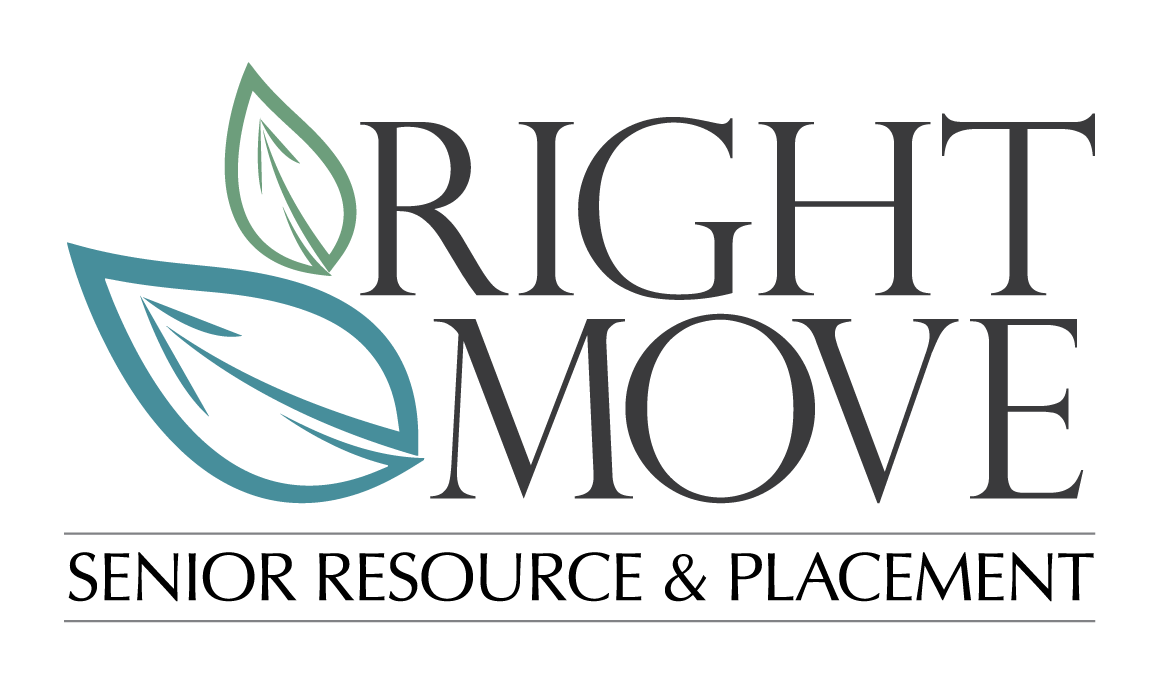When the time is right to move your aging loved one into a senior living community, there are many questions that you should ask the facility before you begin the process of relocation.
Of course, feedback and advice from friends or a reliable source can prove to be helpful. However, solely depending upon another family’s experience does not contribute the unique consideration that your family member deserves.
Every community provides a different level of care and service for its residents. Ensuring that your family member's needs are adequately met will require finding the most suitably fit accommodations.
That's where we can help.
The Right Move is a placement service that specializes in helping your family make the best residential decisions for your aging loved one. Our assistance is crucial for planning and guidance. At The Right Move, we understand that - at the end of the day - you are your family member's greatest advocate. Our goal is to help educate and provide you with the tools you need for the most effective decision making.
In order to do that, we have compiled a list of 15 questions that we consider "must ask" for any facility that will potentially be caring for your loved one.
1. How would you describe the ownership?
Take note of how many years’ experience he or she has in the industry. Also, the financial position of the organization, licenses and accreditation's, and the two most recent state survey results all render important insight. Inquire if there are any “tags” from state surveys and how those issues were addressed. If any remain, then you might want to reconsider this community as a viable option.
Ultimately, you are looking for a solid track record for care and service and a staple company to meet your standards.
2. How many residents currently reside in the community?
Although the number of units is important information, your goal is to discover how many of those are actually filled. If the occupancy rate is substantially low - assuming the community is not brand new - then look elsewhere.
Also, ask about the number of move-ins and move-outs per month to give you an indication of overall satisfaction.
3. What costs are involved?
You will want to be aware of any and all costs, fees, and charges. Common questions pertaining to costs include: Is there an entrance fee? Are there any upfront costs? What is considered an “extra” charge? What is the refund policy? How and when are fees increased? What happens if a family cannot afford the increases?
Obtaining specific cost-related information should occur before signing any admission paperwork.
4. How often are residents’ needs assessed?
A senior’s health condition inevitably changes over time; therefore, periodic assessment is necessary. Find out how the community handles these changes.
5. What qualifications do you require of your staff?
Ask what credentials are required, if background checks are performed, and if any elder abuse and neglect inservice education is given.
6. Does the community allow specialized services (home health, hospice etc.) to come in and care for the resident?
If not, find out how the care is delivered and by whom. In the event of an injury, ask how that situation would be handled.
Also, how are medications administered? Is there a professional nurse on the premises? Find out the medical schedule.
7. How are meals prepared and what is the meal schedule?
Special diets might be available. Inquire if exceptions can be made. Is there a kitchen area provided in the unit? If not, can food be kept in the unit?
8. Are residents allowed to bring their own furnishings?
If this is something that you need to know, then find out if renter's insurance is required to cover personal belongings. Also worth asking: how large is the unit?
9. What activities are available on site?
In addition, inquire about accessible outdoor space. Keeping your aging loved one engaged and active is important.
10. What is the policy for visitors?
Ask if the resident can have pets live in the residence or if visitors can spend the night in the unit.
11. Do residents participate in decision making, as they pertain to community policies?
If not, find out if any exceptions can be made.
12. Who is responsible for unit maintenance and clean up?
13. What kind of security systems are in place?
Common security areas include: the resident’s unit, bathrooms, or the kitchen. This would also be a good time to ask what the fire emergency plan is for the community.
14. What is your policy for pre-existing conditions?
Some communities have restrictive policies that might be in your best interest to know in advance.
15. What is the staffing level?
Determine whether there is adequate staff. Specifically ask about staff availability between midnight and 7 a.m.
The answers to the questions above should provide comprehensive insight into the community in which you are inquiring. After all, this is one of the most important decisions that you will help make for your aging loved one. Hopefully, once the research and interviews have been completed, you can rest assured that your most basic, underlying concern has been resolved: Mom or Dad will be happy here.
That is our hope for you. Consider letting us, at The Right Move, help your family obtain that peace of mind.

